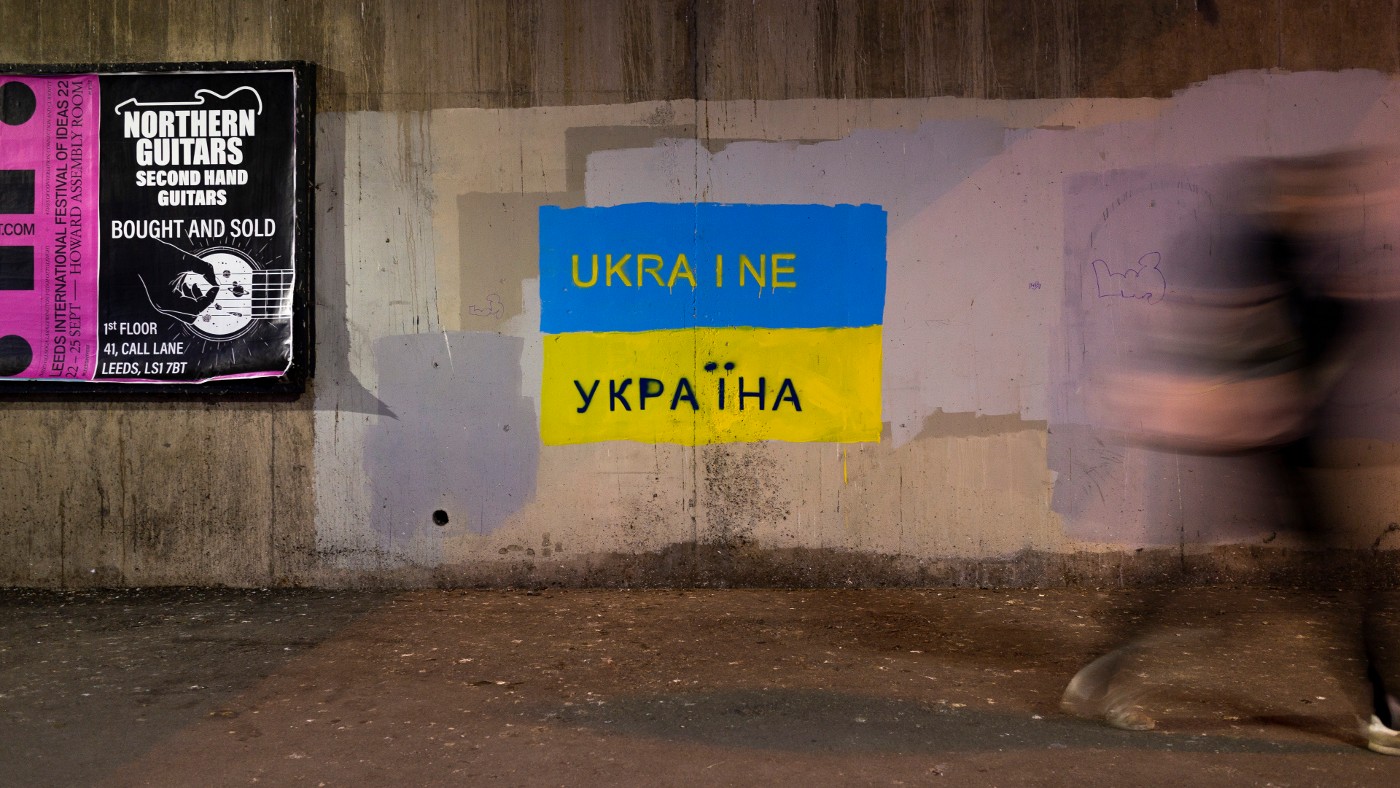The darker side to Homes for Ukraine
Hosts have made sexual advances to refugees and relationships have ‘fallen apart’

A free daily email with the biggest news stories of the day – and the best features from TheWeek.com
You are now subscribed
Your newsletter sign-up was successful
More than 1,000 refugees have arrived in the UK under the Homes for Ukraine scheme but dozens have already seen their accommodation arrangements collapse due to “matching failures”, said government officials.
Male hosts have been making unwanted sexual advances towards female refugees, reported The Times. In one case, a woman in her 20s said that she is trying to transfer to another home after the man she matched with asked whether she had a boyfriend and if she was ready for a relationship.
“She is scared as she now wants to find another sponsor,” said a friend in a Facebook group that matches UK hosts with Ukrainian refugees.
The Week
Escape your echo chamber. Get the facts behind the news, plus analysis from multiple perspectives.

Sign up for The Week's Free Newsletters
From our morning news briefing to a weekly Good News Newsletter, get the best of The Week delivered directly to your inbox.
From our morning news briefing to a weekly Good News Newsletter, get the best of The Week delivered directly to your inbox.
A source in the Department for Levelling Up, Housing and Communities, which is in charge of the scheme, told The Times that have been “several cases where the host and refugee match has failed already” and “the relationship has fallen apart”.
There have also been reports of local councils being over-zealous with their safety checks on potential hosts, with the Daily Mail saying there had been “staggering examples of red tape” for those hoping to host refugees.
During an interview on Radio 4’s World at One, the head of the Local Government Association (LGA), which represents councils and carries out home safety checks, was confronted on the nature of safety checks.
Presenter Sarah Montague said they had heard about cases of people being told to drain their ponds if they had a child coming to stay or that a family was reassigned a different home because plug sockets were too low for children.
A free daily email with the biggest news stories of the day – and the best features from TheWeek.com
“Is that sort of thing really stopping somebody coming from a war zone?” she asked.
LGA chairman James Jamieson said: “We recognise that somebody coming from a war zone is going to be infinitely safer in a home in the UK even if has got a little bit of damp or whatever.”
Meanwhile, a refugee group said it has a “number of worries” about the scheme, “particularly around red tape, safeguarding and resourcing”.
Writing for The i, Andy Hewett, the head of advocacy at the Refugee Council, said that the refugees include “very traumatised women and children who will need a lot of help, and often professional support”.
He added that “there’s a risk that the new scheme may not include the robust checks, training or professional support that will be needed to provide such support.”
Hewett wrote that where the relationship with the sponsor breaks down and the refugee can’t afford private rented accommodation, there is a “real risk” they could end up homeless.
He called on the government to commit to “access to benefits, without long delays” and said “we need to think about what happens when private sponsorship ends and give Ukrainians the opportunity to move into their own home if they choose to in the longer term.”
-
 Political cartoons for February 20
Political cartoons for February 20Cartoons Friday’s political cartoons include just the ice, winter games, and more
-
 Sepsis ‘breakthrough’: the world’s first targeted treatment?
Sepsis ‘breakthrough’: the world’s first targeted treatment?The Explainer New drug could reverse effects of sepsis, rather than trying to treat infection with antibiotics
-
 James Van Der Beek obituary: fresh-faced Dawson’s Creek star
James Van Der Beek obituary: fresh-faced Dawson’s Creek starIn The Spotlight Van Der Beek fronted one of the most successful teen dramas of the 90s – but his Dawson fame proved a double-edged sword
-
 What would a UK deployment to Ukraine look like?
What would a UK deployment to Ukraine look like?Today's Big Question Security agreement commits British and French forces in event of ceasefire
-
 Would Europe defend Greenland from US aggression?
Would Europe defend Greenland from US aggression?Today’s Big Question ‘Mildness’ of EU pushback against Trump provocation ‘illustrates the bind Europe finds itself in’
-
 Is conscription the answer to Europe’s security woes?
Is conscription the answer to Europe’s security woes?Today's Big Question How best to boost troop numbers to deal with Russian threat is ‘prompting fierce and soul-searching debates’
-
 Trump peace deal: an offer Zelenskyy can’t refuse?
Trump peace deal: an offer Zelenskyy can’t refuse?Today’s Big Question ‘Unpalatable’ US plan may strengthen embattled Ukrainian president at home
-
 The Baltic ‘bog belt’ plan to protect Europe from Russia
The Baltic ‘bog belt’ plan to protect Europe from RussiaUnder the Radar Reviving lost wetland on Nato’s eastern flank would fuse ‘two European priorities that increasingly compete for attention and funding: defence and climate’
-
 How should Nato respond to Putin’s incursions?
How should Nato respond to Putin’s incursions?Today’s big question Russia has breached Nato airspace regularly this month, and nations are primed to respond
-
 What will bring Vladimir Putin to the negotiating table?
What will bring Vladimir Putin to the negotiating table?Today’s Big Question With diplomatic efforts stalling, the US and EU turn again to sanctions as Russian drone strikes on Poland risk dramatically escalating conflict
-
 The mission to demine Ukraine
The mission to demine UkraineThe Explainer An estimated quarter of the nation – an area the size of England – is contaminated with landmines and unexploded shells from the war